Are you a real history buff and are you looking for the best history museums to visit in Weimar? These are the ones:
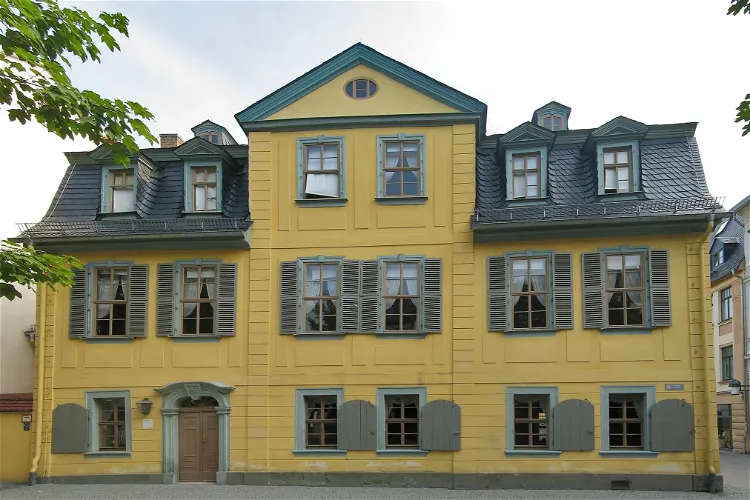
Schiller's House
WeimarSchiller's House, also known as Schillerhaus, is a museum located in Weimar. It is managed by the Klassik Stiftung Weimar and was once the home of the renowned German poet, philosopher, physician, historian, and playwright Friedrich Schiller. The museum offers a unique opportunity to explore the life and works of Schiller in the very place he once lived.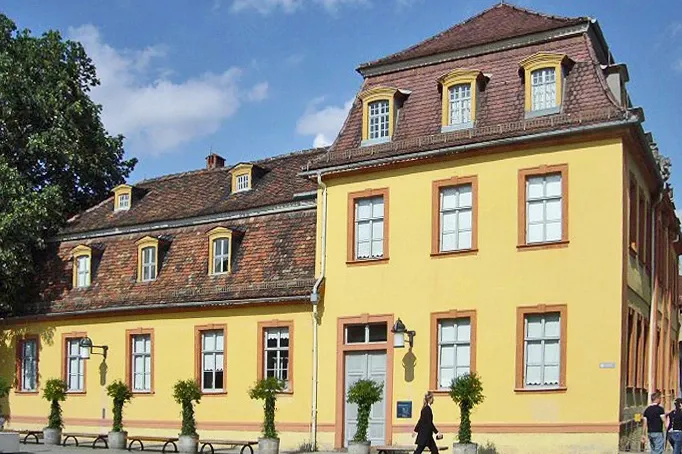
Wittumspalais
WeimarThe Wittumspalais is a museum located in Weimar, Germany. It is operated by the Klassik Stiftung Weimar, a foundation dedicated to preserving and promoting the cultural heritage of Weimar. The museum offers a glimpse into the historical and cultural life of the city.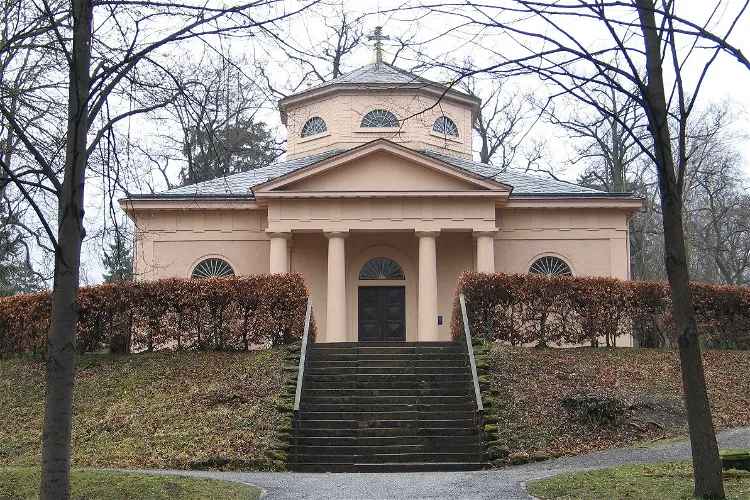
Classical Foundation Weimar
WeimarThe Klassik Stiftung Weimar, or Classical Foundation Weimar, is a major cultural institution in Germany. It boasts an impressive collection of over 20 museums, palaces, historic houses, and parks, along with a vast array of literary and art collections. This makes it a significant destination for those interested in exploring Germany's rich cultural history.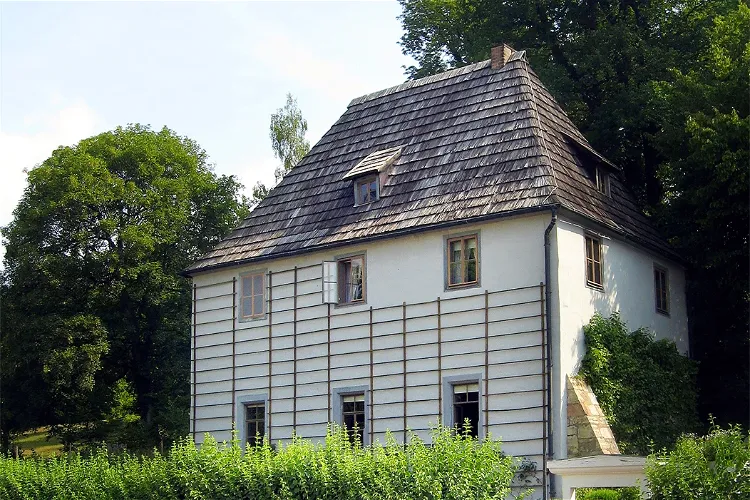
Goethe's garden house (
WeimarGoethe's Garden House, nestled in the Park an der Ilm in Weimar, served as the primary residence and workspace of the renowned German writer, Johann Wolfgang von Goethe. This historical site offers a unique insight into the life and work of one of Germany's most celebrated literary figures.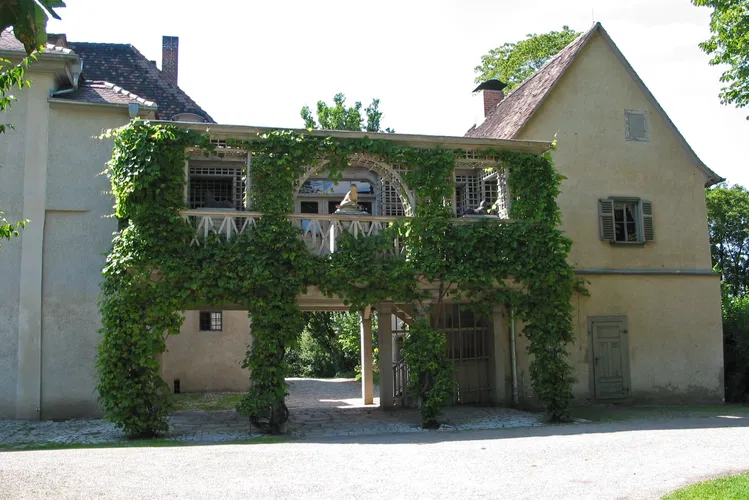
Tiefurt House
WeimarTiefurt Castle is a quaint castle situated on the banks of the Ilm River. It is nestled in the village of Tiefurt, which is approximately four kilometers away from the heart of the city of Weimar. This location makes it a peaceful retreat away from the bustling city center, yet close enough for easy access.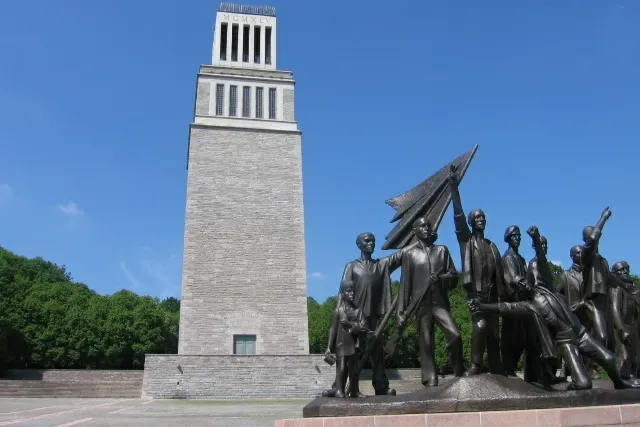
Buchenwald Memorial
WeimarDuring the operation of Buchenwald Concentration Camp, approximately 250,000 people from various European countries were detained and sent here. It is estimated that 56,000 people, including 11,000 Jews, were killed. This grim statistic underscores the scale of the human tragedy that unfolded at this site.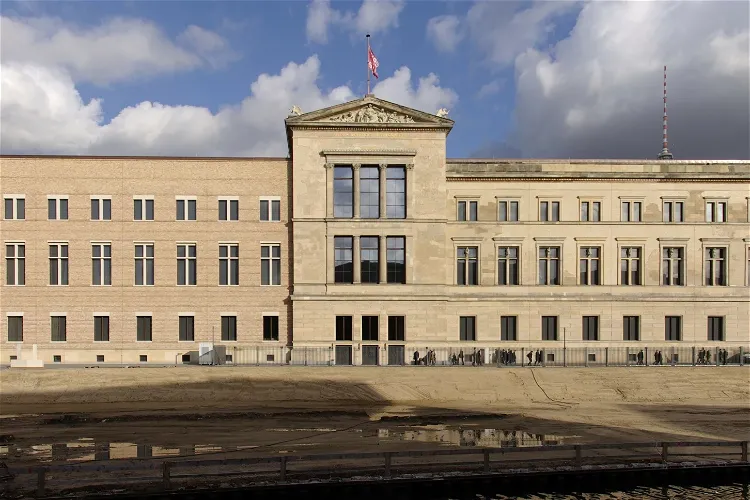
Neues Museum
WeimarThe Neues Museum Weimar, which was known as the Thuringian State Museum from 1919 to 1946 and as the Neues Museum Weimar from 1999 to 2020, is a museum located in Weimar that is dedicated to contemporary art. It was the first museum of its kind in the region of the former GDR. The museum building was constructed as the Großherzogliches Museum (Grand Ducal Museum) between 1864 and 1869 by the Prague architect Josef Zítek.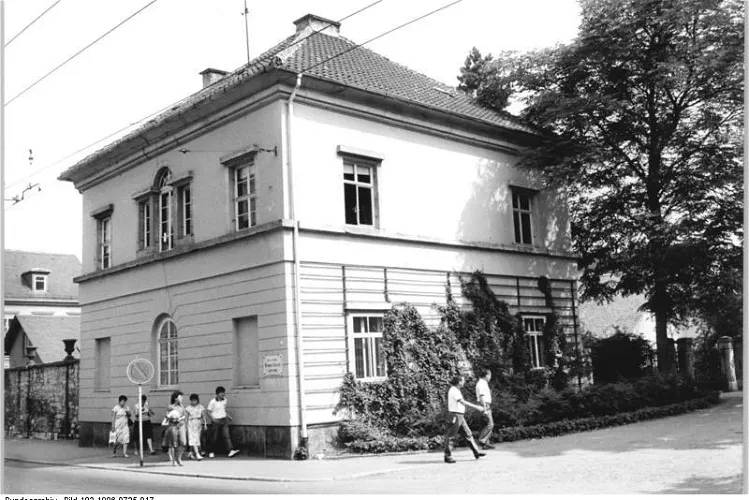
Liszt-Haus
WeimarThe Liszt-Haus is a museum located in Weimar, in the German state of Thuringia. It is dedicated to the life and works of the renowned Hungarian composer, Franz Liszt, who resided in this house. The museum offers a unique insight into the life of the composer, making it a significant destination for music enthusiasts and history buffs alike.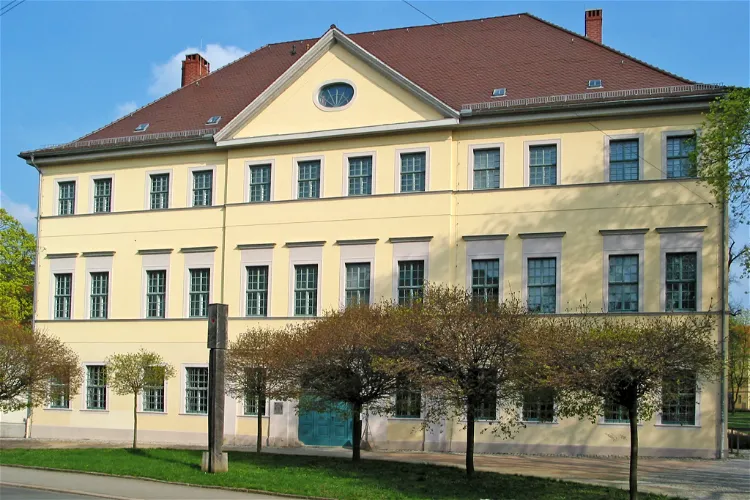
Museum of Prehistory and Early History of Thuringia
WeimarThe Museum für Ur- und Frühgeschichte Thüringens in Weimar is a unique institution that combines a museum with a 1000 m² exhibition area and the Thuringian State Office for Monument Conservation and Archaeology. This combination allows visitors to explore a wide range of exhibits and learn about the archaeological and historical significance of the region.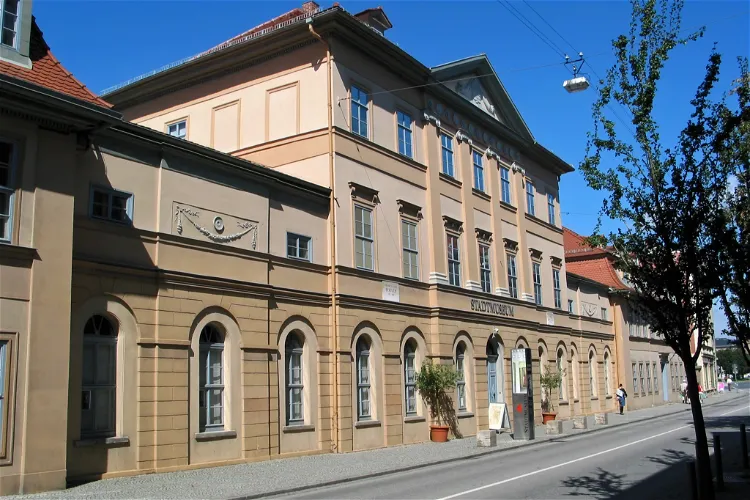
Stadtmuseum Weimar
WeimarThe Stadtmuseum Weimar, located at Karl Liebknecht-Straße 5, holds the distinction of being the first city museum in Thuringia. This museum is housed in a classicist residential and commercial building constructed between 1780 and 1803. The building is named after its builder, Friedrich Justin Bertuch, a prominent entrepreneur, writer, and publisher during Goethe's time in Weimar.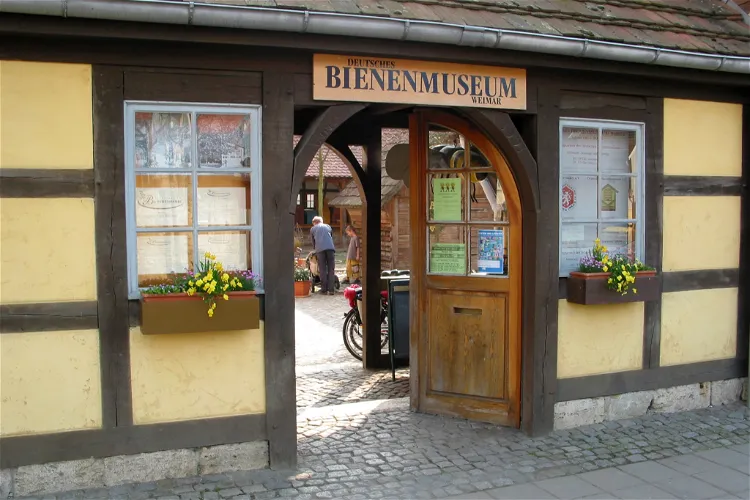
German Bee Museum Weimar
WeimarThe German Bee Museum Weimar, founded in 1907 by Ferdinand Gerstung, offers a deep dive into the world of beekeeping. Gerstung, also known as the 'Bee Father', established the museum to educate and inform about the various aspects of beekeeping. The museum's rich history adds to its charm and appeal for visitors.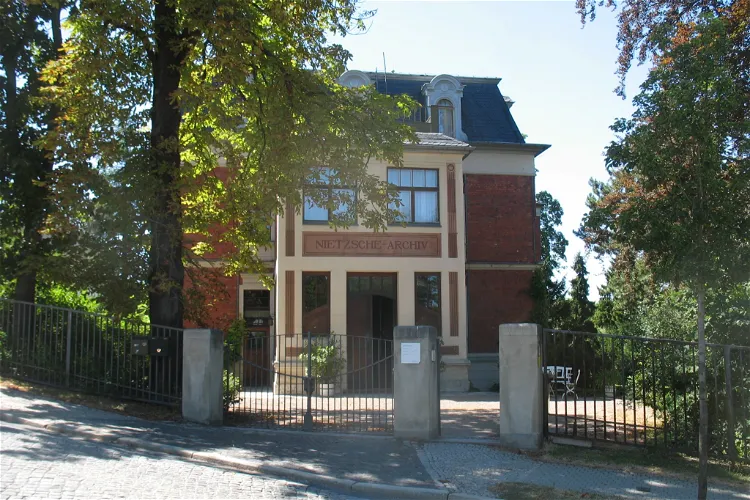
Nietzsche Archive
WeimarThe Nietzsche Archive, established in 1894, is a significant institution dedicated to preserving and documenting the life and work of the renowned philosopher Friedrich Nietzsche. It was the first organization of its kind, focusing solely on Nietzsche's contributions. The archive was initially located in Naumburg, Germany, before finding a permanent home in Weimar.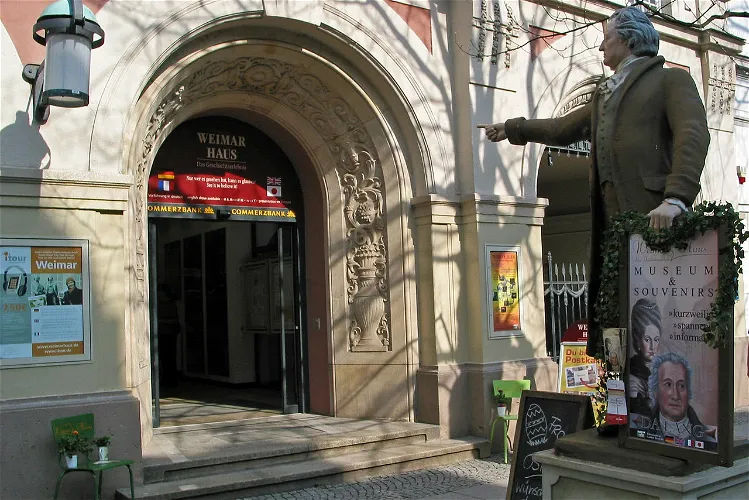
Weimarhaus
WeimarThe Weimar Haus is a unique museum that offers a comprehensive view of the city's history, from the Stone Age to the Weimar Classicism. The museum uses dioramas with wax figures, elaborate light installations, and appropriate soundscapes to bring each era to life. This immersive experience allows visitors to gain a deeper understanding of the city's past and its cultural significance.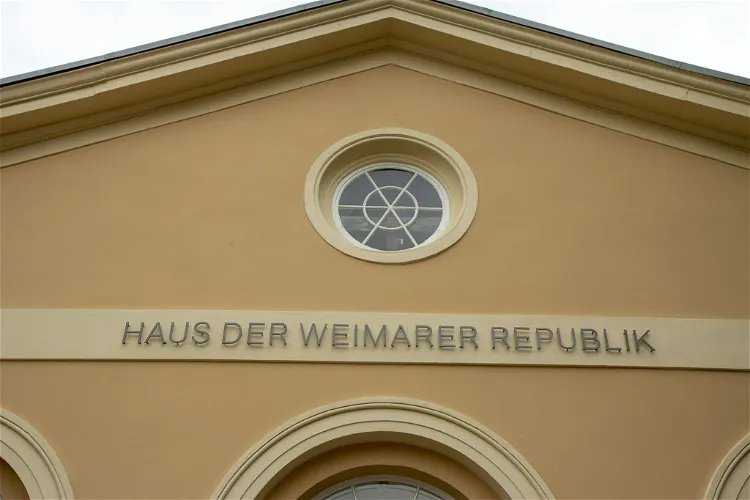
House of the Weimar Republic
WeimarThe House of the Weimar Republic is a museum that was inaugurated in July 2019. It is situated at Theaterplatz in Weimar. The museum's main focus is on the Weimar Republic, the adoption of the Weimar Constitution, and the emergence of democracy in Germany. It serves as a central memorial site for the first German democracy, located directly opposite the German National Theater, where the delegates of the National Assembly met in 1919.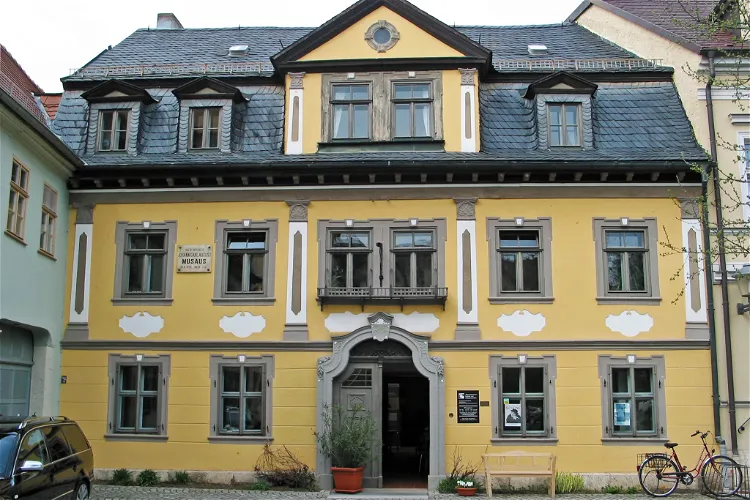
ALBERT-SCHWEITZER-GEDENKSTÄTTE
WeimarThe Albert-Schweitzer-Memorial in Weimar, which was inaugurated in 1984, is located in the historic Musäushaus at Kegelplatz 4. This location adds a layer of historical significance to the memorial, making it an interesting destination for those interested in both history and the life and work of Albert Schweitzer.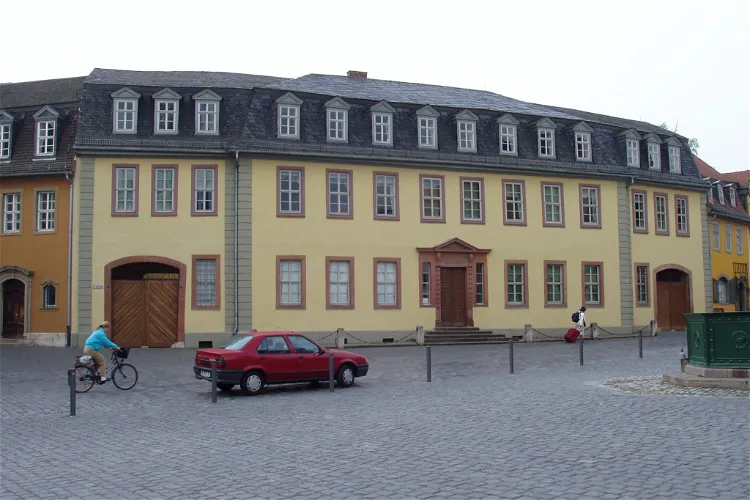
Goethe-Nationalmuseum
WeimarThe Goethe-Nationalmuseum is a museum dedicated to the life and works of the renowned German author Johann Wolfgang von Goethe. It is situated in the town of Weimar in Germany. The museum offers a comprehensive insight into Goethe's life, his literary contributions, and his influence on German culture and literature.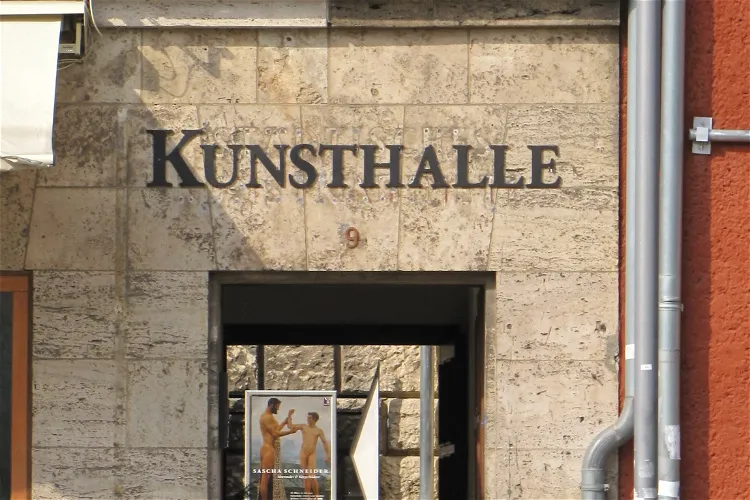
Kunsthalle Harry Graf Kessler
WeimarThe Kunsthalle "Harry Graf Kessler" is a significant historical site in Weimar, built in 1880. The architecture of the building is inspired by the Venetian style of the Renaissance, making it a unique and visually appealing destination for tourists interested in architecture and history.- 18
Zermahlene Geschichte
Weimar - 19
Goethe and Schiller Archive
WeimarThe Goethe and Schiller Archive in Weimar holds the distinction of being the oldest and most traditional literary archive in Germany. It was initially established as the Goethe Archive, following the suggestion of Grand Duchess Sophie. This historical significance adds a layer of depth to the cultural experience offered by the archive.